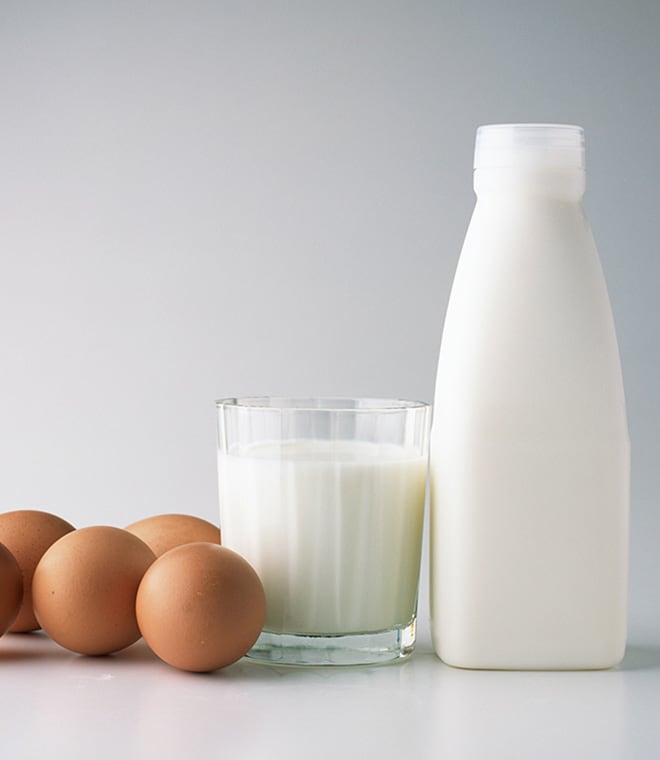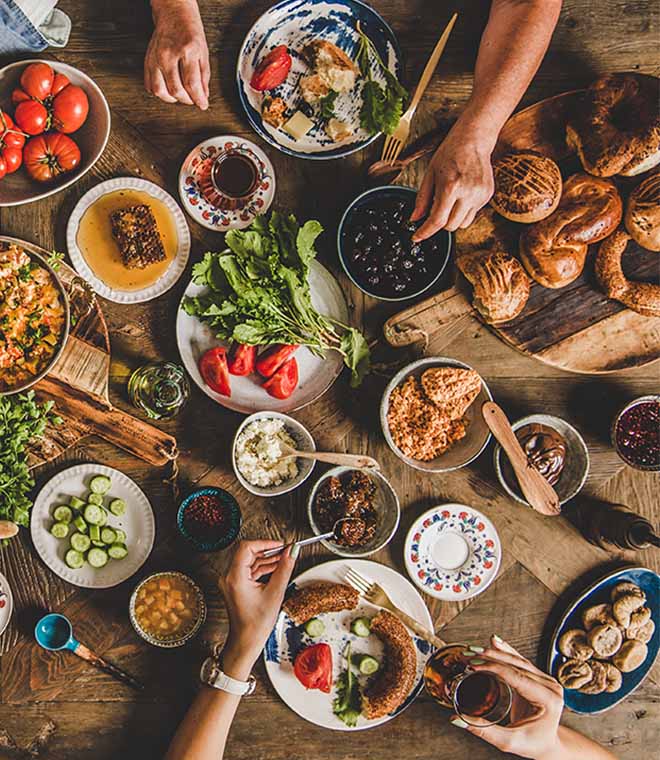Health
What are foods that help with diarrhea?
By Benjamin Renelus, MD, Gastroenterologist Jan 08, 2024 • 4 min
Diarrhea is a common digestive problem with a variety of causes, including infections and chronic conditions. Making changes to your diet can often help improve diarrhea symptoms.
The BRAT diet for acute diarrhea
Often caused by an infection, acute diarrhea occurs for a few days before resolving on its own. Healthcare providers often recommend the BRAT diet for these short bouts of diarrhea.
BRAT stands for bananas, rice, applesauce and toast, four foods that are gentle on the stomach and provide small amounts of fiber to support more solid stools. In addition to these foods, the BRAT diet also includes:
- Clear broth soups
- Water
- Herbal and other caffeine-free teas
- Cranberry, apple and grape juices
- Canned peaches and pears
- Sweet potatoes
- Crackers
- Cream of wheat cereal
- Eggs
- Gelatin
- Oatmeal
- Creamy peanut butter
Bland diet for persistent and chronic diarrhea
If diarrhea lasts for two to four weeks, it’s considered persistent diarrhea, while chronic diarrhea occurs for longer than four weeks and may come and go. If you’re experiencing persistent or chronic diarrhea, your healthcare provider may recommend the bland diet.
Like the BRAT diet, the bland diet consists of foods that are easy to digest and have a low fiber content. While following the bland diet, you can eat:
- Low-fat milk and dairy products in moderation
- Frozen, canned and cooked vegetables
- Fruit and vegetable juices
- Canned or cooked fruit with the skins and seeds removed
- Pasta, breads and crackers made with white refined flour
- Creamy cereals like oatmeal and cream of wheat
- Steamed, grilled and baked poultry, whitefish or shellfish prepared without oil, butter or other fats
- Creamy peanut butter
- Puddings and custards
- Eggs
- Tofu
- Broth-based soups
- Weak tea
Tips for eating while experiencing diarrhea
In addition to choosing the right foods, modifying your eating habits can also help you manage diarrhea. Follow these tips when symptoms arise:
- Eat slowly and chew your food thoroughly
- Opt for several smaller daily meals and snacks rather than three large meals
- Consume fluids at room temperature
- Drink at least one cup of fluid after each bowel movement
- Stop eating two hours before you go to bed
Get help choosing the right foods
If you have chronic or persistent diarrhea, your healthcare provider can help you come up with an eating plan to address your symptoms. They may also recommend that you keep a food diary to track what you eat and what symptoms you experience. This can help identify food sensitivities that may be causing diarrhea. Avoiding foods that you’re sensitive to may lower the risk of diarrhea returning in the future. Your provider may also recommend treatments for diarrhea.
Updated January 2024.
Sources:
- http://www.nlm.nih.gov/medlineplus/ency/patientinstructions/000068.htm
- https://www.urmc.rochester.edu/encyclopedia/content.aspx?contenttypeid=85&contentid=P07276
- https://my.clevelandclinic.org/health/diseases/4108-diarrhea
- https://research.med.psu.edu/oncology-nutrition-exercise/patient-guides/diarrhea/
- https://www.health.harvard.edu/blog/food-allergy-intolerance-or-sensitivity-whats-the-difference-and-why-does-it-matter-2020013018736




